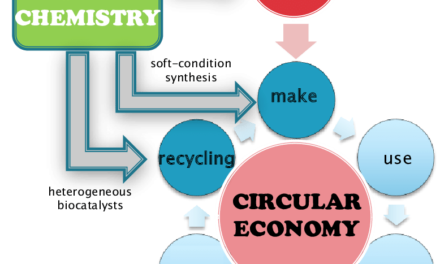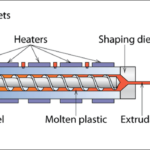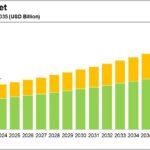The petrochemical industry is embracing numerous innovations to reduce carbon emissions, aligning with global decarbonization goals and regulatory demands. These innovations span feedstock selection, process improvements, carbon capture technologies, and sustainable product design. Here’s how the industry is innovating to minimize its carbon footprint:
1. Carbon Capture, Utilization, and Storage (CCUS)
- Carbon Capture:
- Capturing CO₂ emissions from petrochemical plants before they are released into the atmosphere.
- Example: ExxonMobil’s carbon capture projects are designed to reduce emissions in ethylene production.
- Utilization:
- Transforming captured CO₂ into valuable chemicals like methanol, polyols, or synthetic fuels.
- Example: BASF uses CO₂ as a feedstock for polycarbonate production.
- Storage:
- Storing captured CO₂ underground in geological formations, ensuring long-term sequestration.
2. Transition to Renewable Feedstocks
- Bio-Based Feedstocks:
- Using biomass, agricultural residues, and waste oils as feedstocks for petrochemical production.
- Example: Braskem produces bio-polyethylene using sugarcane ethanol as a renewable feedstock.
- Recycled Feedstocks:
- Converting plastic waste into feedstocks through advanced recycling methods, such as pyrolysis or depolymerization.
- Impact:
- Reduces emissions by diverting waste from incineration and landfills.
3. Electrification of Chemical Processes
- Electrified Steam Cracking:
- Replacing traditional fossil-fuel-fired crackers with electrically powered units using renewable energy.
- Example: BASF and SABIC are developing electrified crackers to produce ethylene and propylene with lower emissions.
- Electrochemical Synthesis:
- Using renewable electricity to drive chemical reactions, reducing reliance on high-temperature processes.
4. Process Optimization and Energy Efficiency
- Advanced Catalysis:
- Developing high-efficiency catalysts that reduce energy requirements and emissions.
- Example: Zeolite catalysts in methanol-to-olefin (MTO) processes improve efficiency.
- Heat Integration:
- Recycling waste heat within petrochemical plants to reduce energy consumption.
- AI and IoT:
- Implementing AI and IoT for real-time monitoring and optimization of energy use in production processes.
5. Hydrogen Integration
- Green Hydrogen:
- Producing hydrogen via water electrolysis powered by renewable energy to replace gray hydrogen (from natural gas) in chemical processes.
- Example: Using green hydrogen for ammonia and methanol production to significantly cut emissions.
- Blue Hydrogen:
- Capturing and storing CO₂ emissions from conventional hydrogen production methods.
6. Carbon-Neutral and Circular Economy Approaches
- Chemical Recycling:
- Breaking down waste plastics into their chemical building blocks for reuse as feedstocks.
- Example: Dow’s advanced recycling initiatives aim to create circular plastics with lower carbon footprints.
- Design for Circularity:
- Developing products that are easier to recycle or biodegrade, reducing lifecycle emissions.
7. Low-Carbon Process Technologies
- Methanol-to-Olefins (MTO):
- Using methanol derived from renewable or low-carbon sources to produce olefins.
- Direct Air Capture (DAC):
- Capturing CO₂ directly from the atmosphere for use in chemical synthesis or sequestration.
- Example: Integration of DAC with petrochemical facilities to create carbon-neutral products.
8. Renewable Energy Integration
- Solar and Wind Power:
- Powering petrochemical plants with renewable energy sources to reduce reliance on fossil fuels.
- Example: Large-scale adoption of solar farms to supply electricity to petrochemical facilities.
- Onsite Renewable Energy:
- Installing solar panels or wind turbines directly at production sites.
9. Sustainable Product Development
- Bio-Based Polymers:
- Producing polymers like PLA (polylactic acid) and PHA (polyhydroxyalkanoates) from renewable sources.
- Lightweight Materials:
- Developing advanced materials for automotive and aerospace industries that reduce emissions during use.
10. AI and Predictive Analytics
- Energy Optimization:
- AI algorithms analyze plant operations to identify energy-saving opportunities.
- Example: Predictive maintenance reduces energy losses by ensuring equipment operates efficiently.
- Carbon Accounting:
- AI-powered tools help monitor and reduce carbon emissions throughout the value chain.
11. Collaboration and Innovation Hubs
- Public-Private Partnerships:
- Collaborations to develop and deploy low-carbon technologies.
- Example: Shell and Cargill partnering to produce bio-based chemicals.
- Research Consortia:
- Industry-wide initiatives to explore new pathways for decarbonization.
12. Regulatory Compliance and Incentives
- Carbon Pricing:
- Adopting technologies to reduce emissions and minimize costs under carbon tax or cap-and-trade systems.
- Subsidies for Decarbonization:
- Governments offering financial incentives for low-carbon petrochemical innovations.
13. Case Studies
- BASF’s Biomass Balance Approach:
- Substituting fossil feedstocks with renewable feedstocks at the start of the production process, reducing emissions across the product lifecycle.
- Dow’s Net-Zero Plant:
- Developing a net-zero carbon emissions ethylene cracker and derivatives complex in Canada.
14. Future Directions
- Modular Carbon Capture Units:
- Portable and scalable units for smaller petrochemical plants.
- Hybrid Feedstocks:
- Combining bio-based, recycled, and traditional feedstocks to balance cost, performance, and sustainability.
- Digital Transformation:
- Widespread use of digital twins and advanced modeling to optimize processes and predict emission trends.
Conclusion
The petrochemical industry is undergoing a significant transformation driven by innovative technologies and sustainable practices to reduce carbon emissions. From adopting renewable feedstocks to electrifying processes and integrating CCUS, these advancements not only mitigate environmental impact but also position the industry for long-term resilience in a carbon-constrained world. Continued investment, collaboration, and regulatory support will be critical to achieving net-zero goals.
Hashtags
#CarbonReduction #LowCarbonPetrochemicals #DecarbonizingIndustry #NetZeroPetrochemicals #EmissionReduction #InnovationsInTechnology #TechForDecarbonization #CarbonCaptureTech #AdvancedPetrochemicals #GreenTechInIndustry #SustainabilityAndGreenPractices #SustainablePetrochemicals #GreenChemistry #EcoFriendlyPetrochemicals #SustainableSolutions #CircularEconomyAndWasteManagement #CircularPetrochemicals #WasteToChemicals #CarbonRecycling #SustainableFeedstocks #ZeroWastePetrochemicals

















